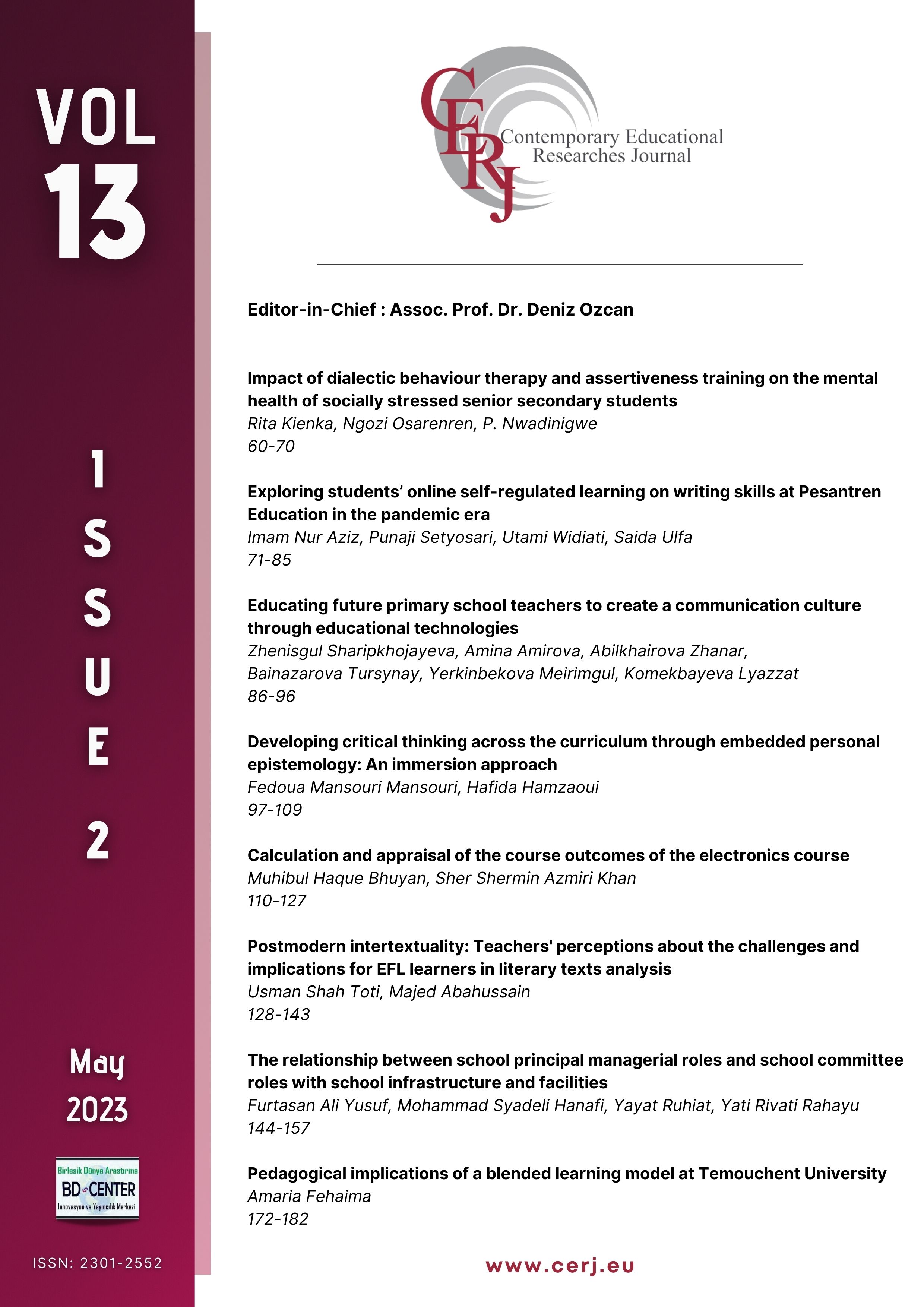Pedagogical implications of a blended learning model at Temouchent University
Main Article Content
Abstract
With the expansion of technology and the rapid spread of Internet use around the world, the supply and demand for education have shifted. In some cases, demographic changes have led to population increases, posing challenges to higher education in terms of demand and supply of education, especially given the global challenges of Covid19. Higher education institutions are researching and adopting pedagogical approaches to meet the changing needs of education in response to various challenges, especially with Covid19. E-learning is one of these modes. This work aims to explore the effectiveness of this new model (mixed education) in English language departments, in particular for third-Year students. It explores the pedagogical issues of e-learning in education for development thus it offers a descriptive study between face-to-face and distance education, which highlights the characteristics and difficulties encountered by EFL Learners. As a result of the study, students found obstacles that hinder course continuity, and they are detailed in the study.
Keywords: Blended learning; EFL Learners; higher education; students’ achievement.
Downloads
Article Details

This work is licensed under a Creative Commons Attribution-NonCommercial-NoDerivatives 4.0 International License.
Authors who publish with this journal agree to the following terms:
- Authors retain copyright and grant the journal right of first publication with the work simultaneously licensed under a Creative Commons Attribution License that allows others to share the work with an acknowledgement of the work's authorship and initial publication in this journal.
- Authors are able to enter into separate, additional contractual arrangements for the non-exclusive distribution of the journal's published version of the work (e.g., post it to an institutional repository or publish it in a book), with an acknowledgement of its initial publication in this journal.
- Authors are permitted and encouraged to post their work online (e.g., in institutional repositories or on their website) prior to and during the submission process, as it can lead to productive exchanges, as well as earlier and greater citation of published work (See The Effect of Open Access).
